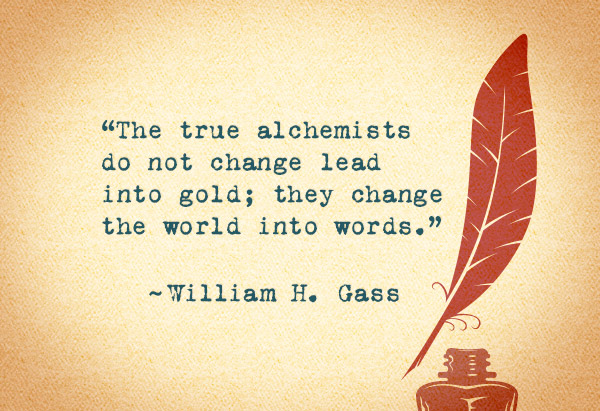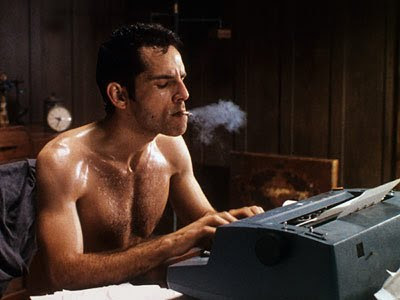As a writer, you have to read a lot. You have to study other people's work. I love reading everything. I like to pay tribute to Self-Published books and Traditional published books because I see strengths in both. So when I stumbled onto Rough Draft by Michael Robertson Jr, I was pleasantly surprised. Not only is he capable of creating atmosphere, likable characters and intrigue but he has also published five other works, including Regret. Which I'm happy to say that is my next book to read.
I contacted the author and wanted to see if he would be up for an interview. Here's what he had to say:
1. What is your earliest memory of writing?
I remember one time in the 3rd grade when the book fair was at my school and I saw one of those book adaptations from some current children’s movie that was popular at the time. I was immediately possessed by the idea that I would write a book adaptation of a favorite movie of mine. I got home from school that day and popped in the VHS, sat down with a piece of paper and pencil, and started to write out all the dialogue in the movie. I made it about five minutes…
Not a glamorous or successful start, but a start, nonetheless.
2. When did you decide to be a writer?
When I was young (Elementary school) I used to love to write little stories. We had this yearly event called the Young Authors Contest, and I always got excited about what story I’d write that year. As I got older, I drifted into sports and didn’t write anything that wasn’t required for school.
However, I’ve always been a reader at heart. Devoured books at all ages, all through school. I was the guy reading a Stephen King novel on the bleachers waiting for basketball practice to start. One day when I was about twenty I inexplicably got the itch to start writing again. I remember reading books and thinking, Man, I’d really like to try telling a story of my own. That weekend I wrote the first chapter of the first novel I’d ever written. That book will never see the light of day, but I had a blast and haven’t really looked back.
3. Do you get writer's block? How do you combat it?
People have different views and definitions for what they believe writer’s block is, and to answer I can give you two different ways I’ve experienced it.
The first is more of the common definition I suppose. I was writing my novel Regret, and about half way through I hit a road block. The story had been going along fine, I was piecing it together nicely (so I hoped) and then BAM! Complete plot failure. My issue wasn’t so much WHAT was going to happen, but WHY it was going to happen. And that WHY was going to have to fuel the events of the entire last half of the novel. I don’t think I wrote anything on the manuscript for close to a month. How’d I combat it? Just a lot of thinking and pondering as I drove around town, or as I was falling asleep.
Second, I don’t experience writer’s block as much as I do “Idea Block” – I think my biggest fear is that I will run out of things to write, that I won’t be able to come up with anything semi-original or intriguing enough to justify writing. I go through that a lot. Basically between every story and novel.
4.What's your writing routine? Do you write longhand, typewriter or computer?
I’m self-published, still work a 9-5 as a Director of IT, and of course have a normal life to contend with. My routine is non-existent with the exception of there’s usually coffee or tea in large quantities. I write either in the early mornings, or late at night… or sometimes at work if it’s—I mean, yeah, mornings or nights. I write on a computer and have to have quiet. I know a lot of writers like to write with music playing but I can’t do it. My brain tends to focus on the sounds and not the words I’m trying to put on the screen. Although as an experiment one time I did write a short story with the Inception soundtrack playing. It was pretty gruesome (the story, not the music), so maybe there’s something to it. Maybe I’ll give it another shot in the future.
5. Rough Draft is a real page turner. What inspired you to write it?
My mother is just as avid (if not more so) a reader as I am and we had an email conversation one day discussing three of our favorite authors and the styles of each of them (they all write horror / thrillers) and what each of their strengths were. I made the comment to her that it would be really fascinating to read a collaboration by the three of them. As soon as I typed the words I saw an image in my head of the three writers sitting in a cabin in the woods, their laptops on a table, working together on this potentially epic novel. The idea grew from there.
6. I notice that within the book you give a nod to your Pseudonym Dan Dawkins. Why did you choose to write under a pen name?
I actually wrote a blog post of my own back in January of 2012 explaining why I published Regret and The Teachers’ Lounge as Dan Dawkins. The quick answer is this: My novel Regret is a tell-all memoir of a man who reached his breaking point and snapped in horrible ways. This man also happened to be a writer of fiction. I thought it would be a neat marketing tactic to put the book out as Dan Dawkins and see what the reaction was. I didn’t come clean about it being myself who’d written the book until much later. You can read my full explanation here;http://mrobertsonjr.com/blog-
7. I loved the idea of three writers figuring out what happened to this abandoned town. Is this partly inspired by the Lost Colony of Roanoke?
I’m familiar with the story of Roanoke, and maybe subliminally Rough Draft was influenced by memories I had of the tale, but I don’t think I ever consciously thought of Roanoke as I was writing.
8. This book caught me off guard with how unpredictable it is. Was it outlined or did you write freely?
When I started writing Rough Draft the only thing I knew was I had to get three horror writers to the cabin in the woods and they were going to be forced to write a book together before they’d be allowed to leave. I had no idea why at the time. I got them there, and then gradually came up with the reasoning. Once I had the reasoning, I had my ending (somewhat), but everything in the middle was unplanned and not outlined at all. I can’t outline to save my life. I just see where the characters take me. I put the puzzle together one chapter at a time. Trying to think one or two steps ahead but usually having to go back three.
9. What are you working on now?
Right now I’m working on the beginnings of a new novel. Only have about 20k words, but I think it has potential. However, I’ve got a lot going on outside of writing (recently married, trying to sell and buy a house, the holidays are coming up) so I’m not really able to focus on it as much as I’d like. I think I’m going to shelve it for a while and write two other ideas I’ve recently had (they’ll be short stories or novellas), and pick the novel back up once things calm down.
10. What advice do you have for aspiring writers?
This is the question that I myself always looked forward to hearing answered during author interviews I watched or read. And the answer that always comes up is simultaneously the best answer, and most boring answer that nobody wants to hear—You have to read a lot and you have to write a lot. There’s no other way to develop your skills as a writer. It’s the only way to find your voice.
Another answer that I’ve recently discovered and I think is fantastic is one I heard Joe Hill (Stephen King’s son, who can write with the best of them) say at a recent reading he did. He said, and I’m paraphrasing here, don’t set out to write a short story, or a novella, or a novel. Just sit down each day and make it your goal to write one really good scene. Don’t just write about your character getting up and eating breakfast, just to get your words in for the day, but each time you write, go for one really good scene. You do that over and over and eventually you’ll have something.







